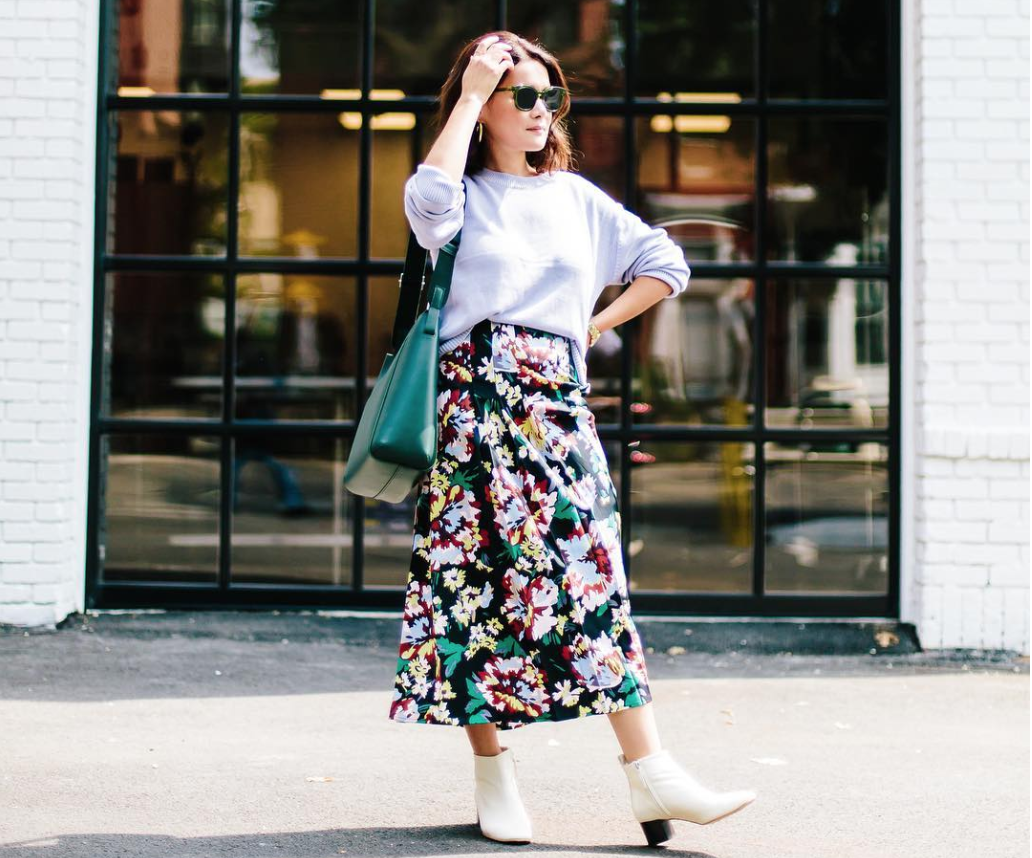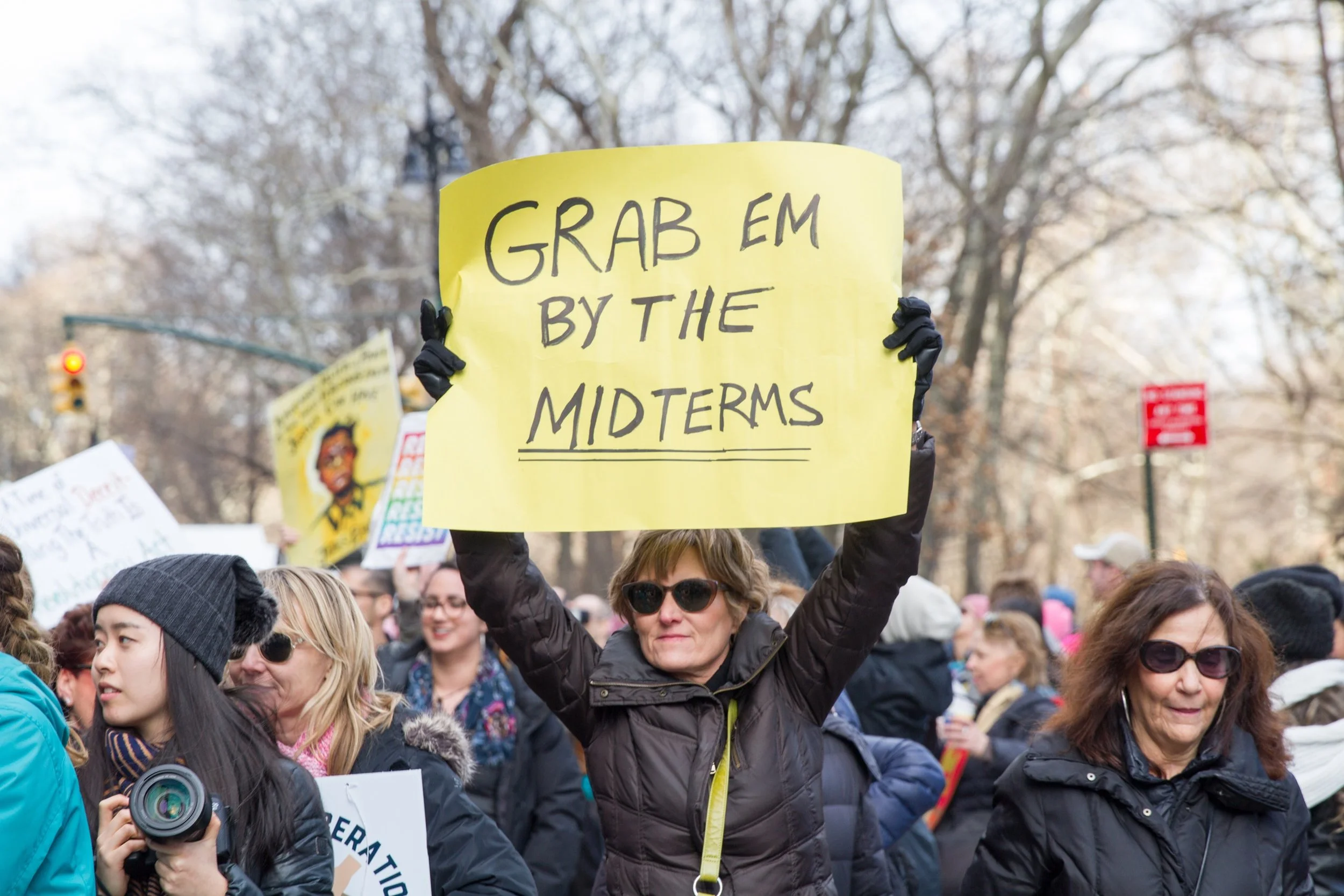Making Moves: Award Noms, New Funding, & Netflix Pickups
These ladies are makin’ moves!
This week was a doozy for women in business! Below, we’re sharing big deals, award noms, and pre-seed funding secured by badass ladies who know what they want and aren’t afraid to go for it. Check ‘em out below!
Girls’ Night In, our favorite self-care newsletter by #createcultivate100 alum Alisha Ramos, has raised a pre-seed round of $500,000!
Netflix has picked up the “momedy” sitcom Workin' Moms by Black-ish star Catherine Reitman. The series, which has aired on the CBC network in Canada since Jan. 2017, follows four 30-something women in a mommies' group as they juggle work, home, and love.
CEO Katrina Lake’s wildly-successful personal styling box Stitch Fix was featured in the #5 spot on Fast Company’s Most Innovative Companies list this week. The company generated $1.2 billion in its fiscal 2018.
Li Li Leung, currently vice president of the NBA, has been named president and CEO of USA Gymnastics. Formerly a college gymnast at the University of Michigan, and the sport’s crisis with Larry Nassar compelled her to step into the role.
Minyon Moore, Donna Brazile, Yolanda Caraway, and Leah Daughtry, authors of For Colored Girls Who Have Considered Politics, have been nominated for an NAACP Image Award. The book gives a behind-the-scenes look at the authors’ 30+ years working in politics.
MORE ON THE BLOG
Women Aren't Just Running for Office, They're Winning
A win for women is a win for all.
Women across the country are rising up to run for office in record numbers.
Since the 2016 election, 36,000 women have contacted Emily's List about running for office, and 417 women have filed to run for the U.S. House of Representatives in 2018.
This May, 2018, Maggie's List, a federal political action committee (PAC) dedicated to electing fiscally conservative women to federal office and statewide executive office, announced that they are endorsing 49 candidates for United States Senate, United States House of Representatives races and state-wide offices.
According to CNN, "In 1970, there was just one female Senate candidate. Today, there are 49 to 54 women running, depending on whether and which third-party candidates you include. There are 394 women running for the House and 56 in governor's races (including third-party candidates), as of May 23."
CNN also reports that Arizona has never had a woman in the Senate, making it a hotly contested seat. There are multiple women running for both the Republican and Democratic nominations in a primary on Aug. 28.
According to the Center for American Women in Politics, the number of Democratic women running for House seats this year increased 146 percent over 2016 (to 351), while the number of Republican women running for the House increased just 35 percent (to 99); on the other side of the Capitol there are only 14 Republican women running for Senate compared to 27 Democratic women.
This wave of female candidates is groundbreaking, making clear that women will be the foundation of change in 2018.
After this season’s first batch of primary races, we know women aren’t just running; they’re winning. Specifically Democratic women are winning.
Approximately one-third of the way through primary season, here’s a look at where Democratic women candidates are by the numbers:
289 Democratic women remain in the running for the U.S. House of Representatives. Meanwhile, 29 Democratic women remain in the running for the U.S. Senate, and 43 remain in gubernatorial contests.
In the 65 contested Democratic races between men and women without an incumbent candidate, women won 45.
In the May 8 primaries in Ohio, Indiana, North Carolina, and West Virginia, 22 of 31 Democratic omen wo their races.
In the Texas primaries, 24 Democratic omen either won or made it into the top two spots for runoff elections out of 32 congressional districts.
In first big primary night, of the 27 female House candidates who were successful, nearly 30 percent were women of color.
Tomorrow’s California primaries, a record 57 women will be on the ballot for the U.S. House of Representatives.
Women are paying attention, and they’re rising up to make their voices heard. Who is excited for this sea change?
Photo by Mirah Curzer on Unsplash
MORE FROM OUR BLOG
Survey Finds Women More Unlikely to Run for Office Than Ever
Feeling discourgaed? Don't!
Cosmopolitan.com has reported that "almost a year after Donald Trump’s election to the Oval Office, Democrats continue to tout what they see as a silver lining of his victory: record numbers of women deciding to run for office. Emily’s List, a group that helps elect pro-choice Democratic women to office, reported in August that more than 16,000 women had expressed interest in running since Trump won, and Emerge America, a group that recruits and trains Democratic women, said last month it had seen an 87 percent increase in applications to its programs. In July, She Should Run, a nonpartisan organization devoted to helping more women attain public office, launched a campaign to spur 250,000 women to run for office by 2030."
And yet, in a Cosmopolitan.com survey and “How to Run for Office” package which launched this week, the comprehensive, 16-piece package included surprising results. Namely, that the 2016 election discouraged women from running for office.
The survey of 3,813 adults over the age of 18 found that 15% of women were discouraged from running for office because of the election, versus just 10% who were encouraged. On the other hand, men were more encouraged (17%) than discouraged (13%). Men 18-34 were the most likely to consider running for public office now or in the future (26%), whereas women 35-64 were the least likely (9%).
Part of the reasoning likely includes that 72% of women think it's harder to get elected as a woman and that they are held to a higher standard. We can't argue with that.
Still, it's not exactly what we wanted to hear. However, the package also includes practical tools, advice, and op-eds from notable female politicians and former candidates – including Martha McSally, Cathy McMorris Rodgers, Muriel Bowser, Letitia James and Wendy Davis – to encourage more women to run for elected office.
How do you feel about running? Would you throw your hat in the ring to change the world? Let us know in the comments below. And check out the full findings here.



















